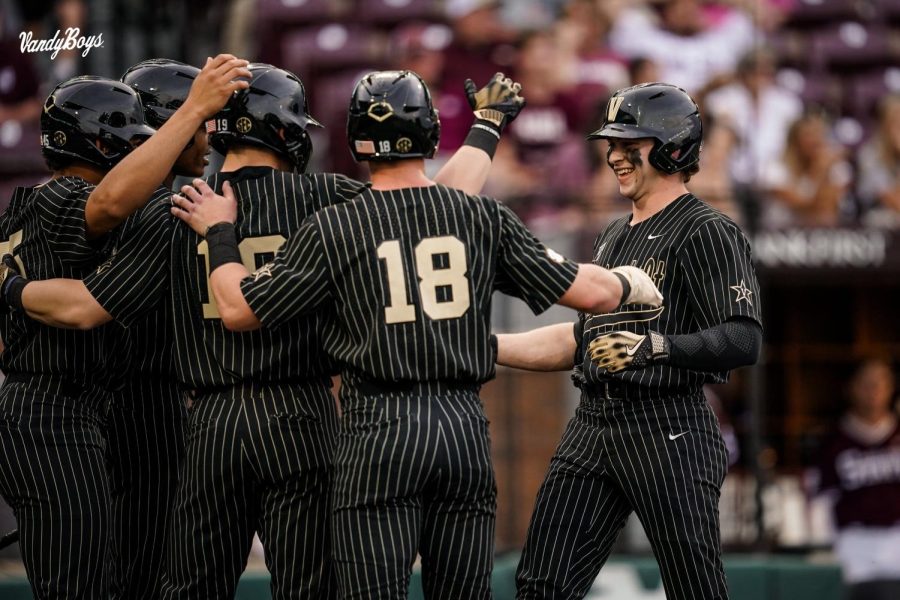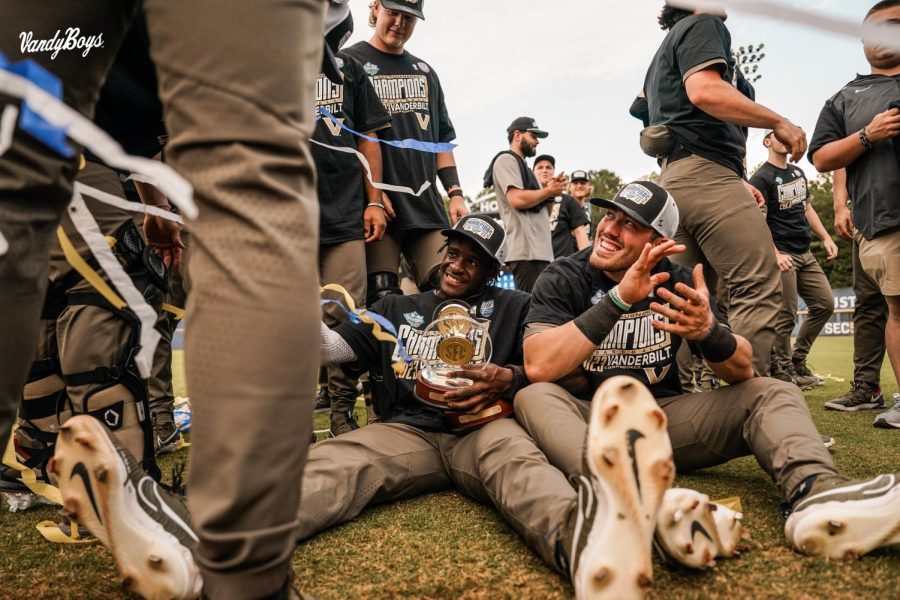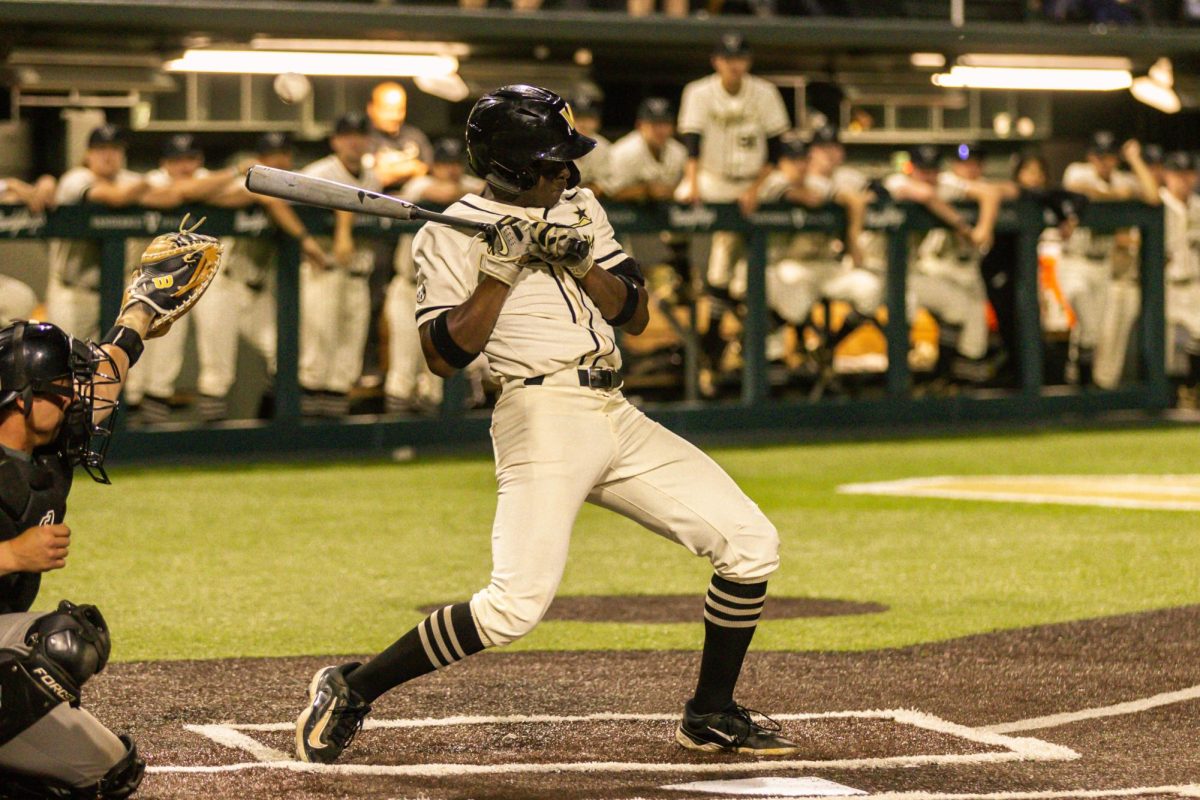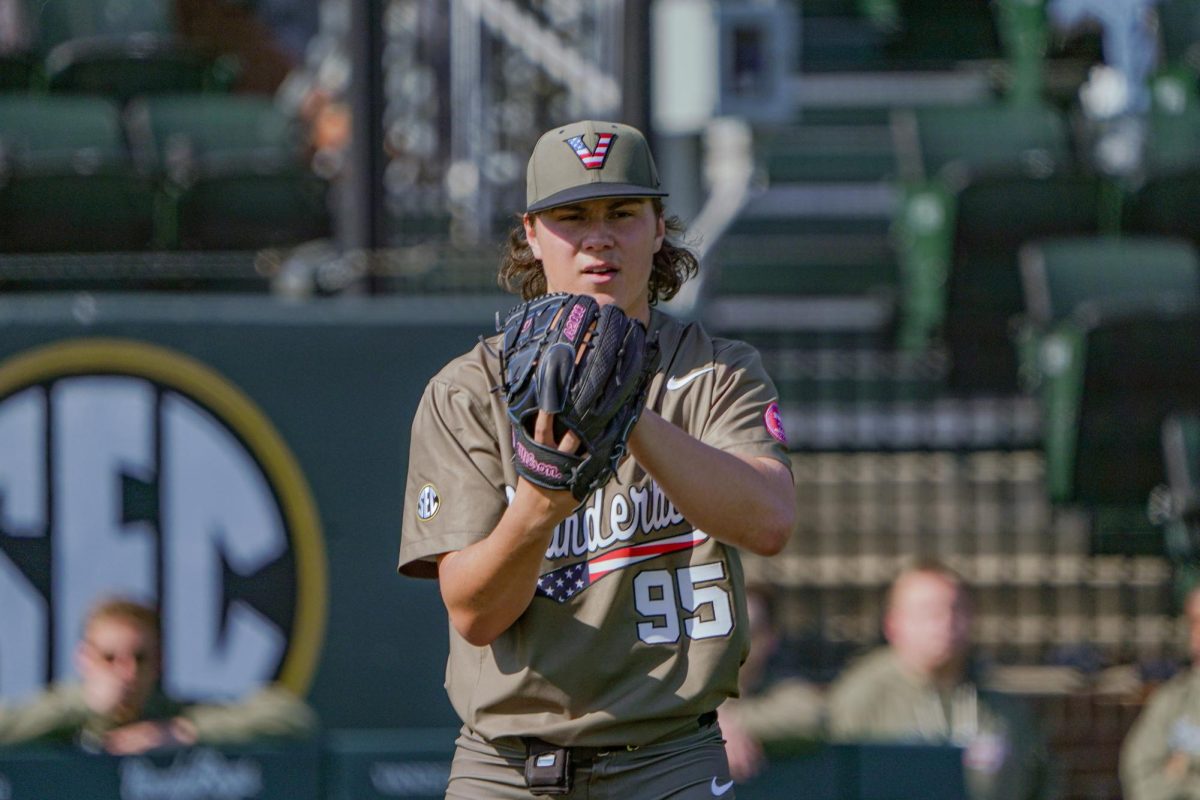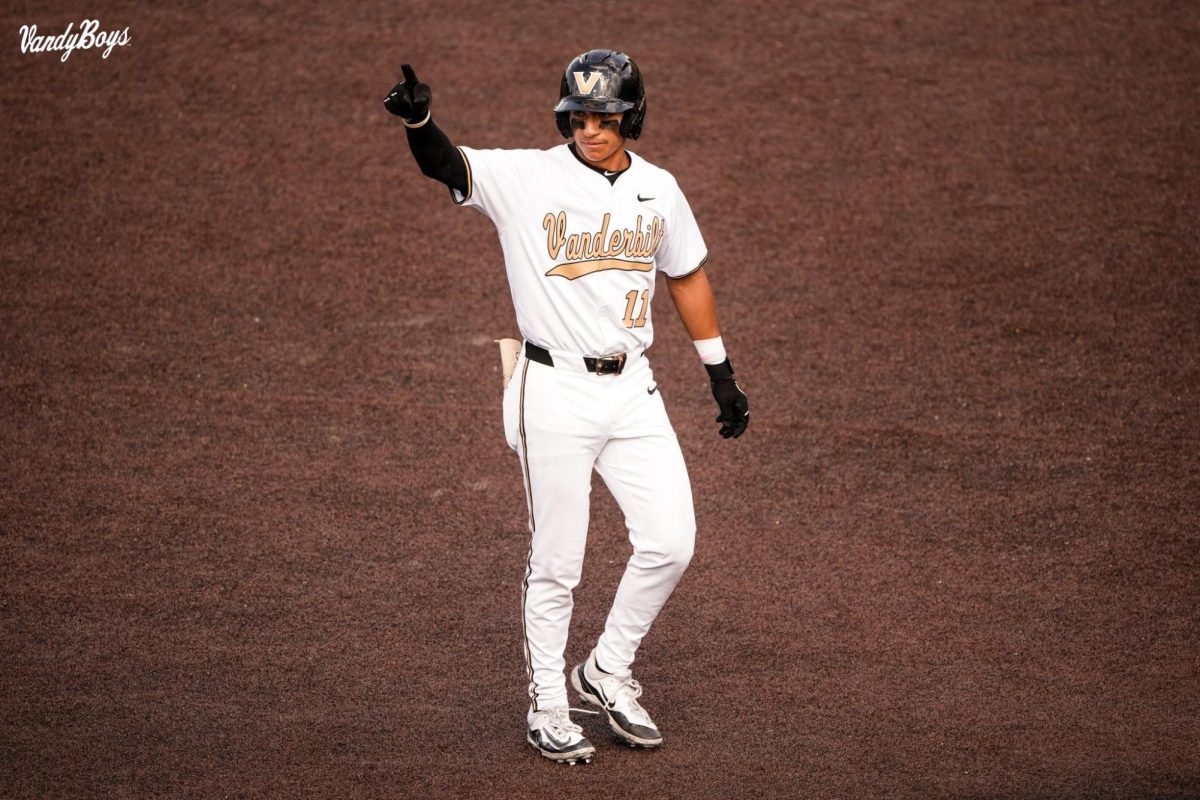The No. 4 Vanderbilt Commodores (19-5, 6-0 SEC) swept Mississippi State (14-11, 0-6 SEC) over the weekend in Starkville, scoring an incredible 55 runs along the way. Now on a seven-game winning streak overall, the Commodores have opened their SEC schedule with sweeps over both Mississippi teams ― the last two national champions. Along the way, they’ve won every game by at least four runs and, including the win over Belmont, have scored 97 runs during the streak. The VandyBoys sit tied for first in the SEC East with their first 6-0 conference start since 1972. With everything looking up for Vanderbilt at the moment, here’s what contributed the most to their success against the Bulldogs.
Runs in bunches
There’s no getting around it. Any talk that the Commodores wouldn’t be able to score runs against the SEC has been shut down. Vanderbilt scored 26 on Friday, 18 on Saturday and 11 in Sunday’s finale. Friday’s total set the program record for most runs in an away game. The Commodores could have had a shot at the school record for runs in any game (31 in 1986), but were cut short after seven innings due to the SEC’s new run rule.
The Vanderbilt lineup ― which was again the same in all three games ― recorded 46 hits and blasted 12 homers. All nine starters recorded at least three hits in the series. Davis Diaz hit three bombs, with two on Sunday. Enrique Bradfield Jr. showed that the power in his bat still plays, homering Friday and Saturday while swiping his 16th and 17th bases.
RJ Schreck had another monster game on Saturday, going 3-for-4 with two homers and eight runs batted in (RBI). Incredibly, Schreck’s eight-RBI game wasn’t even enough to lead the team that game. Schreck still leads the club in all three triple-crown categories (batting average, home runs and RBIs).
Of course, there’s one more power hitter who put on a show this weekend.
Noland’s double-slam Friday
First baseman Parker Noland stole the headlines in Friday’s blowout with two grand slams and 11 runs batted in, breaking the program record for most RBIs in a game. The two salamis contributed to a 5-for-6 performance for Noland.
The senior added two more hits and two RBIs on Saturday as well as one more RBI on Sunday. Noland has bounced around between positions for most of his college career, at times even having trouble making the lineup. However, this year in the absence of Dominic Keegan, Noland has found a reliable home at first base and proven himself as a solid bat, even in the seventh spot in the lineup. He’s worked his way to a .290 batting average with a .516 slugging percentage with five homers and 24 driven in through 23 appearances.
Patience at the plate
So what’s gotten into these Commodores? How has a team that barely scraped across two runs in 17 innings against Evansville put up double-digits in all three games against a recent national champion?
Clearly, there’s been an influx of patience at the plate and trust throughout the lineup that the next guy up will be there. Vanderbilt drew 23 walks over the weekend after averaging just over 4.5 per game previously. The Commodores took ten walks in Friday’s rout while being hit by a pitch three times. Of course, a lot of that can and should be blamed on the Bulldogs’ pitching staff, which was fairly horrendous all weekend. But something’s really changed. Hitters who previously looked like they were trying to force a ball in play at all costs have slowed down. We’re seeing fewer chases at off-speed pitches out of the zone while hitters like Schreck, Diaz and Bradfield wait to punish mistakes.
To single out someone else, Chris Maldonado’s at-bat in the top of the second inning Sunday was fantastic. The freshman, at bat with one out and Jack Bulger on first, fouled off three well-placed fastballs by Nate Dohm, either high or off the plate at 96 miles per hour and higher. With a 1-2 count and Dohm frustrated, the righty attempted to turn to his slider ― a worse pitch ― and spiked it to allow Bulger to take second. Dohm’s next pitch was a mistake ― a fastball on the inside half of the plate ― and Maldonado made him pay by ripping it down the line to drive in a run and tie the game.
This may not have been the flashiest moment of the series, but it was a real turning point to tie up Sunday’s game while running up Dohm’s pitch count. Maldonado quietly had a great series of his own, going 4-for-12 with a homer and at least one RBI in all three games. This sort of team at-bat is exactly the kind that has propelled this winning stretch for Vanderbilt.
Pitching to contact
The SEC Network’s broadcast described all three Vanderbilt starters ― Carter Holton, Hunter Owen and Devin Futrell ― as “old-school lefties.” In the modern era in which the strikeout is king and having a 100 m.p.h. fastball seems like the minimum, this rotation is a nostalgic breath of fresh air. All three of Vanderbilt’s weekend starters can be called “pitch-to-contact” guys, and they did so well. Owen struck out five in his seven innings on Saturday and only walked one hitter. Futrell was pulled in the fifth inning but only walked one.
The reason I’ve focused on the walk numbers for these pitchers is that they predominantly came in low-leverage spots when Vanderbilt had already amassed a large lead. While old-fashioned left-handed pitching to contact has gone out of fashion to some extent, it’s incredibly valuable in these spots. When the opposing team needs a big inning to get back in the game, a solo homer is only a little bit worse to allow than a walk. These starts also took a lot of pressure off the bullpen, which took down 8.1 mostly low-leverage innings and should be well rested for the upcoming week.
The VandyBoys will next play on Tuesday, March 28 at 6 p.m. against Lipscomb at Hawkins Field, a makeup of last week’s rainout.

